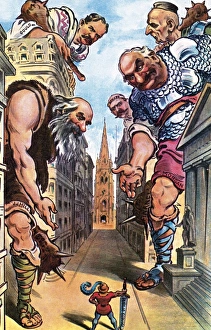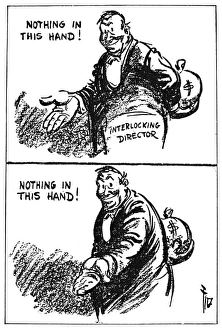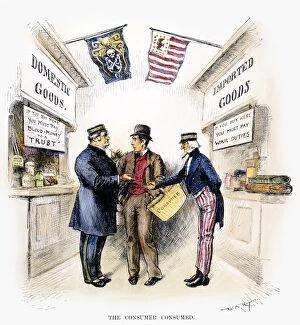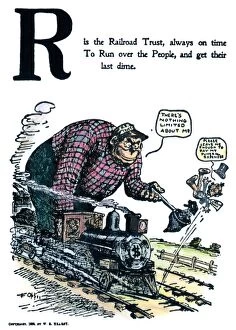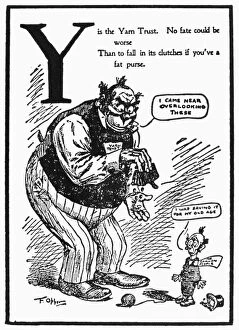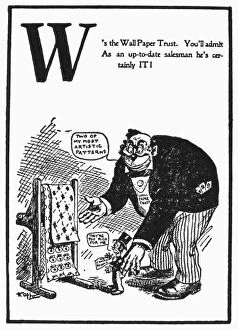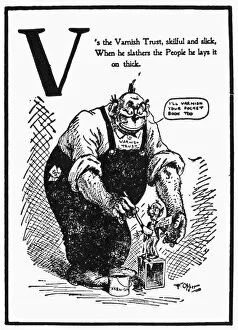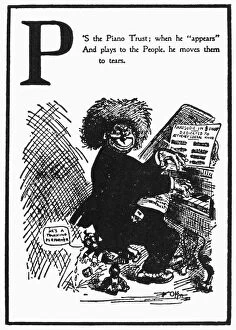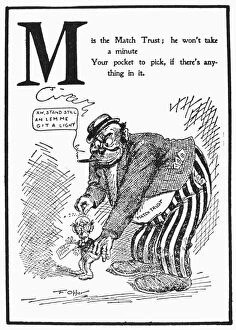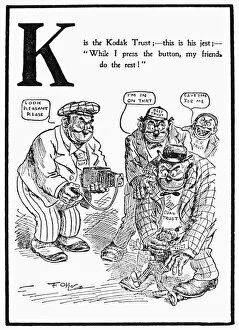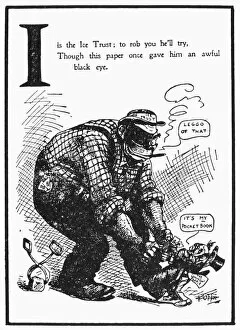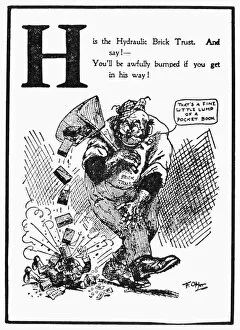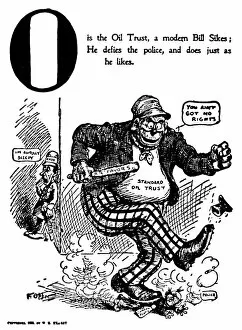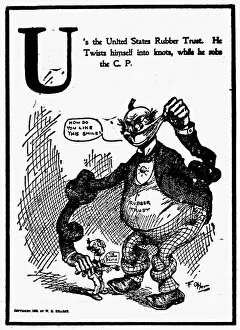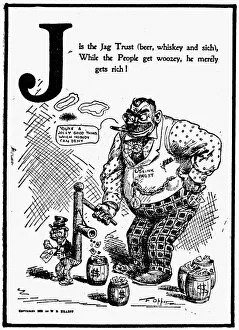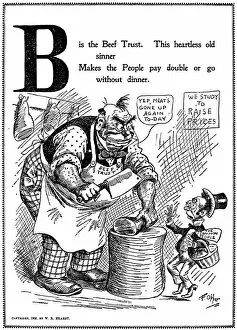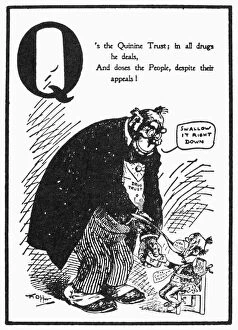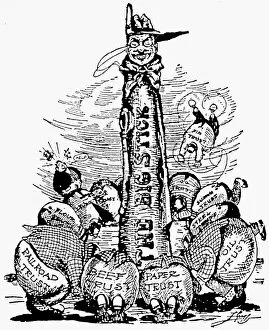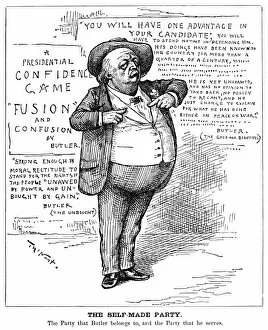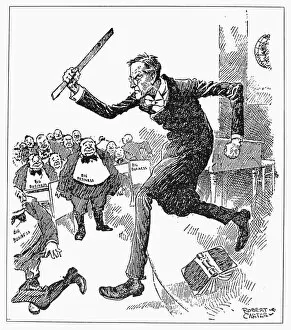Antitrust Collection
"Unveiling the Antitrust Era: A Historical Perspective through Cartoons" Step back in time to the early 20th century
All Professionally Made to Order for Quick Shipping
"Unveiling the Antitrust Era: A Historical Perspective through Cartoons" Step back in time to the early 20th century, where political cartoons served as powerful tools for social commentary. In 1904, a Roosevelt Cartoon emerged, capturing the nation's attention with its depiction of trust-busting President Theodore Roosevelt. This cartoon marked the beginning of an era that would forever change America's economic landscape. Fast forward to 1914, and we encounter another thought-provoking piece titled "Anti-Trust Cartoon. " Created by Daniel R. Fitzpatrick, this illustration highlighted the significance of the Clayton Antitrust Act—an important legislation aimed at curbing monopolistic practices and promoting fair competition. But these were not isolated incidents; rather they were part of a broader movement against trusts and monopolies that plagued various industries during this period. An Alphabet series from 1902 satirized several notorious trusts such as beef, railroad, oil, yarn, wallpaper, varnish, piano, theatrical trust—the list seemed endless. These cartoons shed light on how these powerful entities manipulated markets and stifled competition. The year 1888 witnessed yet another impactful cartoon entitled "Monopoly and Tariffs: The Consumer Consumed. " It cleverly portrayed how tariffs protected monopolies while burdening ordinary consumers—a reminder that antitrust measures alone could not address all economic challenges. These cartoons collectively symbolize a turning point in American history—a call for fairness in business practices and protection of consumer rights. They reflect society's growing awareness about concentrated power within certain industries and its detrimental effects on free markets. Today we continue to grapple with similar issues—antitrust debates persist as new tech giants emerge while traditional industries face consolidation threats. As we study these historical cartoons from over a century ago, let them serve as reminders that our fight against monopoly power is ongoing—an ever-evolving battle for economic justice.

